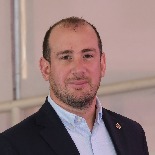
SDEWES INDEX
related metrics presents an opportunity to trigger policy learning, action, and cooperation to bring cities closer to sustainable development.
Assessing Latin America's Role as a Leading Hydrogen Exporter in the Global Energy Transition
Several countries in Latin America consider themselves as a prominent exporter of Hydrogen within the context of a global energy transition. Positioned as a strategic player owing to its abundant solar and wind resources, it is still necessary to rigorously evaluates the regional landscape. This includes an in-depth analysis of the extant renewable energy infrastructure, policy frameworks, and strategic alliances that collectively fortify Latin America's emergence as a key stakeholder in the expanding green hydrogen market. Additionally, there must be a critical exploration of socio-economic implications, emphasizing the potential for substantial job creation and economic growth inherent in the region's trajectory toward hydrogen exportation and energy transition towards carbon neutrality.
Moderator

Felipe Feijoo is an associate professor at the school of Industrial Engineering at the Pontificia Universidad Católica de Valparaíso, Chile. Dr. Feijoo has worked in world-renowned institutions including the Johns Hopkins University, Massachusetts Institute of Technology (MIT), University of Zagreb, and at the Pacific Northwest National Laboratory (PNNL), one of the U.S. Department of Energy’s national laboratories. Dr. Feijoo is an expert in modeling and optimization of complex systems, particularly in energy system modeling using game theory, optimization, data driven techniques, and Integrated Assessment Models (IAM), such as the GCAM IAM, leading to the analysis of regional and global energy transition pathways. Dr Feijoo has led and participated in several national and international projects including the Fondecyt Regular grant (2022-present), Fondecyt Iniciación grant (2018-2021), INTERENERGY project (2020-2021), and the CONICYT MEC Project (2018-2020). Dr Feijoo also serves as board member of the Journal “Energy Sources, Part B: Economics, Planning, and Policy”.

Every nation is thinking about hydrogen and trading its derivatives. But the scale is often forgotten.
Each 1% of the future hydrogen market requires about 70 GW of renewable capacity. This number comes from assuming a global market of 300 MTon/year, an energy content of 33kWh/kgH2, and a modest 20% in conversion losses, yielding 12500TWh/y. 1% of this amount is 125TWh. Assuming an average capacity factor of 20%, we would need 125000GWh/8760h/0.2= 70GW of installed generation capacity.
70 GW is a manifold of the total installed capacity of Chile (about 30 GW) and New Zealand (about 10 GW). This is a huge infrastructure challenge, on top of meeting electricity demands from electrification and a growing population. The combined issues of the scale and pace of required renewable energy deployments are absent in many political debates and deserve more attention.
We will explore these challenges and opportunities in the panel on Assessing Latin America's Role as a Leading Hydrogen Exporter in the Global Energy Transition.

Chile is a candidate to become a worldwide green hydrogen hub. We formulate and implement a model that co-optimizes the expansion of the H2 industry and the expansion of the associate power system, when considering the main technical features of both the power system operation and the H2 production, and use such a model to adequately asses the economic and environmental impacts of green H2 production on the Chilean power system infrastructure investments. In doing that, we formulated a model that co-optimizes the expansion of the H2 industry and the expansion of the associate power system, considering the main technical features of both the power system operation and the H2 production. We used the proposed model to analyze the interactions between the main Chilean power system and H2 industry.

Hydrogen and its derivates like ammonia or methanol is on everyone's lips and fires the imagination of industry, governments, media professionals and scientists. Last but not least, Power-to-X is the survival hope of the outdated fossil industry.
We will discuss how energy systems coupled across sectors (Smart Energy Systems) change when hydrogen and its derivatives are integrated here. Furthermore, what impact will the use of hydrogen as a molecule and not as an energy carrier have on the energy system if it will be produced from renewable sources like wind and solar.
And if we take all this into account, will the world remain as it is? Or do the material flows change more than just the origin of where the hydrogen will be produced? Will this be South America? Apart from hydrogen and its derivates, will the trade of other raw materials also change?
